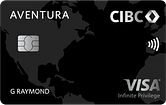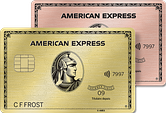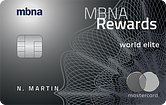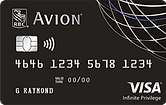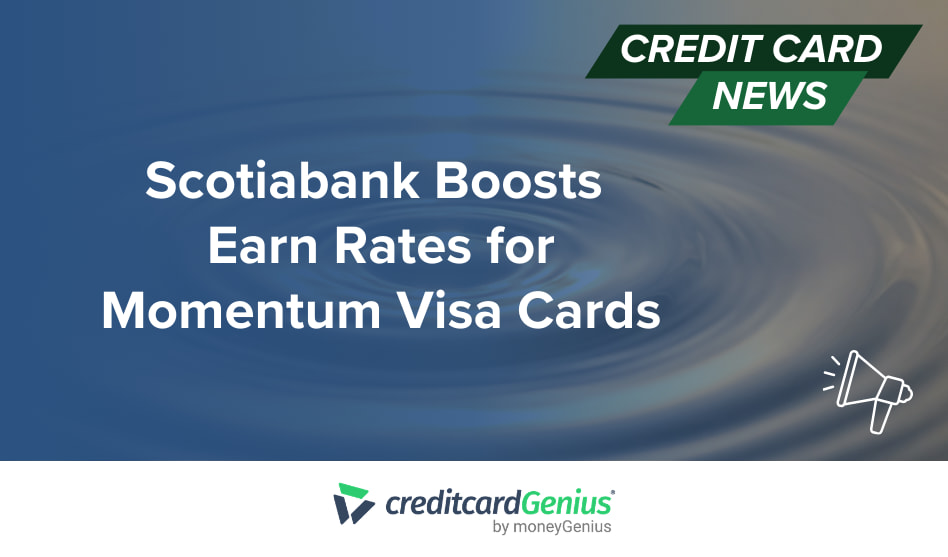Best Rewards Credit Cards in Canada for 2026
Credit cards to earn the most rewards points – no matter which kind you collect.
A rewards credit card lets you earn rewards from the money you'd spend anyway, either as cash back or points, to help offset everyday costs, travel‑related expenses, and other purchases.
With a 4.5% average rate of return and a valuable, flexible rewards program, the American Express Cobalt Card is by far the best rewards credit card in Canada.
But the next best rewards credit cards come with some tempting perks. Both the CIBC Aventura Visa Infinite Privilege Card and American Express Gold Rewards Card include free airport lounge access in addition to their impressive rewards.
| Credit card | Annual fee | Average rate of return | Rewards | |
|---|---|---|---|---|
| #1 | American Express Cobalt Card | $191.88 | 4.5% | * 5 points per $1 spent on eligible groceries and restaurants (up to $2,500 spent per month) * 3 points per $1 spent on eligible streaming services * 2 points per $1 spent on eligible gas, transit, and ride share purchases * 1 point per $1 spent on foreign currency purchases * 1 point per $1 spent on all other purchases |
| #2 | CIBC Aventura Visa Infinite Privilege Card | $499 | 3.34% | * 3 points per $1 spent on travel booked through CIBC Rewards * 2 points per $1 spent on gas, EV charging, groceries, restaurants, and transit * 1.25 points per $1 spent on all other purchases |
| #3 | American Express Gold Rewards Card | $250 | 2.95% | * 2 points for every $1 spent on gas, groceries, drugstores, and travel * 1 point for every $1 spent on all other purchases |
This guide covers all the features and benefits of Canada's best rewards cards, including pros and cons, rewards program comparisons, and tips on choosing the right card. All of the cards covered in this guide were selected using our data-driven Genius Rating algorithm, which ranks every credit card in Canada using 126+ data points.
Key Takeaways
- The American Express Cobalt Card earns an unbeatable 10% on groceries and restaurants.
- In exchange for valuable points, rewards credit cards charge annual fees and high interest rates.
- When choosing the right rewards card for you, think about where you spend the most money and how you plan to redeem your points.
The best rewards credit cards in Canada
Our Gold award for the #1 rewards card in Canada goes to the American Express Cobalt Card. This card's monthly fee is quickly offset by a return rate of up to 10% on groceries and restaurants. Plus, it comes with robust insurance and carries no minimum income requirements, making it accessible to apply for.
Our Silver award goes to the CIBC Aventura Visa Infinite Privilege Card, which gets you a 3% return on travel booked through CIBC Rewards. You'll also enjoy a $200 travel credit and airport lounge access.
And our Bronze award goes to the American Express Gold Rewards Card, which earns 4% on gas, groceries, drugstore purchases, and travel.
The 3 best rewards cards in Canada are all American Express or Visa cards, but the best Mastercard for rewards is the MBNA Rewards World Elite Mastercard. This card earns 5% back on groceries, restaurants, and recurring bills. Since Loblaws doesn't accept American Express, the MBNA Rewards World Elite Mastercard is a great alternative for Canadians who buy their groceries at No Frills or Superstore.
As a Mastercard, the MBNA Rewards World Elite Mastercard can also be used at Costco. But if you shop at Costco often, check out the best Costco credit cards in Canada – in terms of rewards, they come out on top of Costco's own branded card.
Which of Canada's best rewards cards is right for you? It depends on how you spend your money and what kinds of rewards you'd like to earn.
All the cards in this guide offer multiple redemption options, meaning you can choose how to spend your points. In addition to helping you find the best rewards credit card, we'll help you make the most of your rewards by including how many cents per point (CPP) your rewards are worth with each redemption option.
Value of reward in $ / value of reward in points x 100 = cent per point (CPP) value
The #1 rewards card in Canada: American Express Cobalt Card
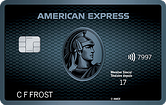

The American Express Cobalt Card earns its place as the best rewards credit card on the market. This card has tremendous earning power with an average return rate of 4.5%. With a monthly spend of $3,000, split across various categories, you can earn an estimated $1,620 in rewards every year.
This more than offsets its annual cost of $191.88, which is billed in monthly installments in every province except Quebec, where you'll pay once annually.
Point program: American Express Membership Rewards
How to earn points:
- 5 points per $1 spent on eligible groceries and restaurants (up to $2,500 spent per month)
- 3 points per $1 spent on eligible streaming services
- 2 points per $1 spent on eligible gas, transit, and ride share purchases
- 1 point per $1 spent on foreign currency purchases
- 1 point per $1 spent on all other purchases
Best ways to redeem points:
- Transfer to Aeroplan (2 CPP)
- Amex's Fixed Points Travel Program (1.75 CPP)
- Transfer points to Marriott Bonvoy (1.16 CPP)
To get even more out of your American Express Cobalt Card, look out for partner promotions, early access event tickets, and complimentary hotel upgrades added by Amex Offers, Front Of The Line, and The Hotel Collection.
Silver award rewards credit card: CIBC Aventura Visa Infinite Privilege Card
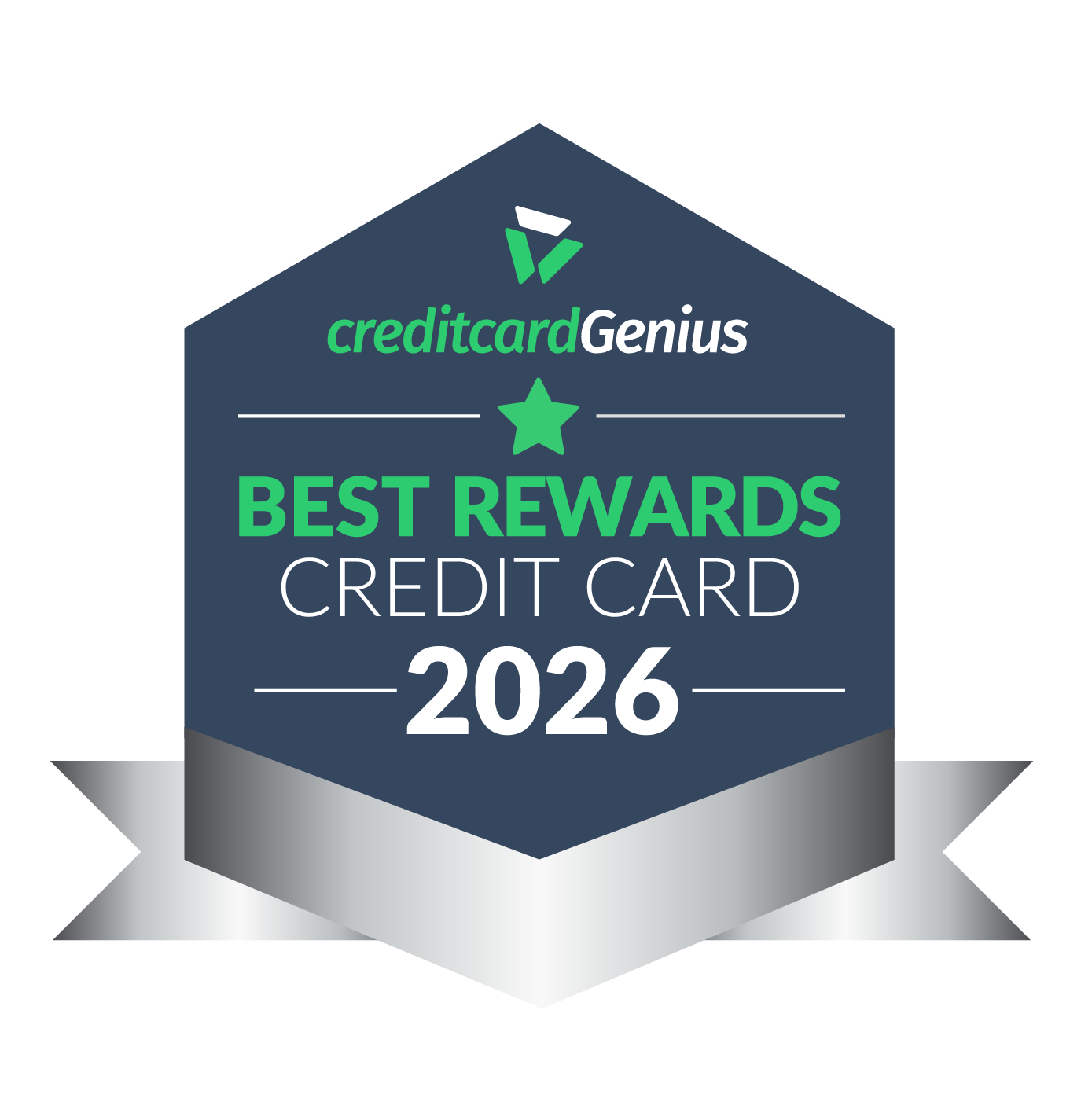
The CIBC Aventura Visa Infinite Privilege Card brings value right from the start, with a huge welcome bonus worth up to $1,832. Then, you'll earn an average return of 3.34% on your purchases. With all these rewards, you can earn up to $1,620 in estimated annual rewards (based on an average monthly spend of $3,000).
Since this is a Visa Infinite Privilege card, you'll pay a higher annual fee of $499, but you'll also enjoy premium perks, like access to exclusive dining experiences.
Point program: CIBC Aventura
How to earn points:
- 3 points per $1 spent on travel booked through CIBC Rewards
- 2 points per $1 spent on gas, EV charging, groceries, restaurants, and transit
- 1.25 points per $1 spent on all other purchases
Best ways to redeem points:
- Travel through the Airline Rewards Chart (2.29 CPP)
- Travel through CIBC rewards (1 CPP)
- Charitable donations (1 CPP)
The CIBC Aventura Visa Infinite Privilege Card offers more than just points. This card comes with 12 types of insurance, including emergency medical, travel accident, and flight/baggage delay coverage.
Plus, you can enjoy 6 complimentary lounge passes through Visa Airport Companion, a $200 annual Travel Credit, and a NEXUS statement credit for up to 2 travellers.
Bronze award rewards credit card: American Express Gold Rewards Card
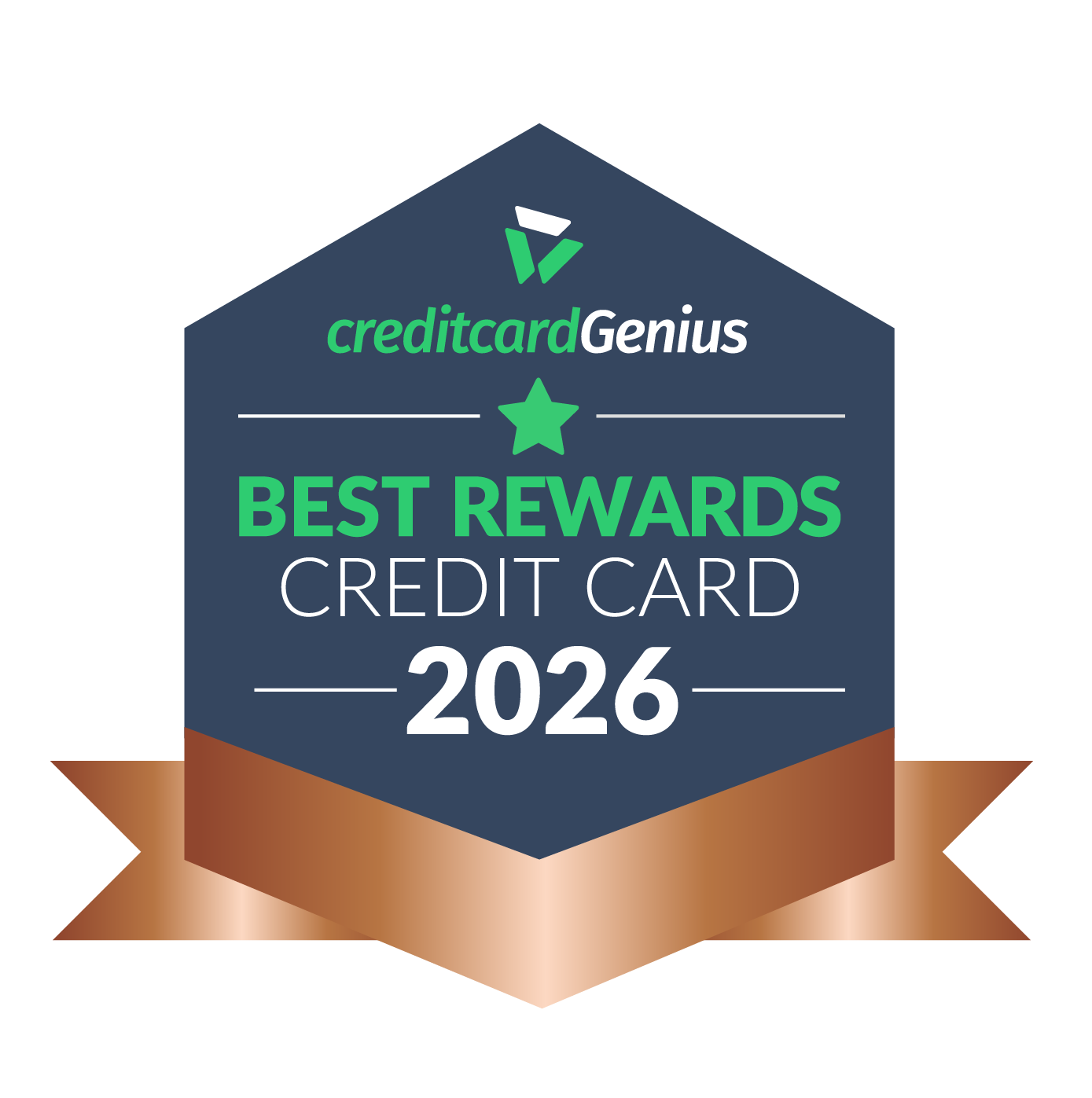
The American Express Gold Rewards Card keeps its rewards simple, with a 4% return rate for a few bonus categories and a 2% return rate for everything else.
This card also offers a welcome bonus worth up to $1,200, which helps offset its high annual fee of $250.
Point program: American Express Membership Rewards
How to earn points:
- 2 points for every $1 spent on gas, groceries, drugstores, and travel
- 1 point for every $1 spent on all other purchases
Best ways to redeem points:
- Transfer to Aeroplan (2 CPP)
- Amex's Fixed Points Travel Program (1.75 CPP)
- Transfer points to Marriott Bonvoy (1.16 CPP)
The American Express Gold Rewards Card is another rewards card that's loaded up with perks. This shiny metal card comes with a NEXUS rebate, an annual $100 travel credit, 11 types of travel insurance, airport lounge access, rental car upgrades, a complimentary Priority Pass membership, and exclusive hotel benefits.
The Amex Gold Rewards Card offers a premium travel experience for a slightly less-than-premium price.
The best Mastercard rewards card
The MBNA Rewards World Elite Mastercard is one of the few flexible rewards credit cards that lets you redeem points for gift cards at almost the same rate as travel. Other programs' rewards points drop to 0.7 CPP or lower, but MBNA gives you the flexibility to change your plans without losing point value.
It also helps that this card awards you a generous 10% point bonus every year on your birthday.
How to earn points:
- 5 points for every $1 spent on restaurants, groceries, and select recurring bills (up to $50,000 spent annually per category)
- 1 point per $1 spent on all other purchases
Best ways to redeem points:
- Travel (1 CPP)
- E-gift cards (0.99 CPP)
- Gift cards (0.92 CPP)
The MBNA Rewards World Elite Mastercard is also a World Elite Mastercard. This means that as a cardholder, you'll enjoy concierge services, Cirque du Soleil discounts, and a DragonPass membership that gives you access to 1,300+ global airport lounges for $32 USD per visit.
Compare all top rewards credit cards by Genius Rating
Our Genius Rating system uses a refined, math-based algorithm that analyzes over 126 data points to generate a score out of 5 for every credit card we review.

The Genius Rating methodology
We picked the best rewards credit cards in Canada after considering over 126 features in 7 main categories:
- Rewards
- Fees
- Perks
- Insurance
- Interest
- Acceptance
- Approval
Using unbiased math, the creditcardGenius algorithm calculated the average annual rewards of each card based on a typical monthly spend of $3,000, then scored each entry out of 5.
To rank the best rewards cards in Canada, we prioritized the data points related to rewards.
Learn more about our Genius Rating methodology
How to choose the right rewards credit card
When picking a rewards card, match the annual fee to your budget and choose a program that rewards the categories you spend most on—travel, dining, or savings—while offering the best points-per-dollar return rate.
Check and compare features such as welcome bonuses, annual value, and network acceptance to ensure your card is accepted wherever you shop. Finally, make sure you meet the card's income and credit score minimums, as more premium options can have very steep requirements.
Rewards
Every rewards credit card (and rewards program) is different, so it's important to understand exactly what type of purchases will net you the most rewards and how to put those rewards to good use.
The average earn rate and estimated rewards for each card will point you in the right direction, but think about your own habits. If you choose a card that earns the most points on restaurants, but you don't dine out very often, you won't see these bonus rewards.
Here's how Canada's top rewards cards stack up in popular spend categories.

Keep in mind that the CIBC Aventura Visa Infinite Privilege Card's travel rate is for travel booked through CIBC Rewards. Travel booked elsewhere will be rewarded at the base rate of 1.25 points for an estimated return of 1.25%.
And remember that you can't use the American Express Cobalt Card at Loblaw-banner stores like Superstore and Zehrs, so you'll also need to consider where you plan to shop. This card gets incredible value for grocery purchases, but if you buy all your food at No Frills and don't want to switch stores, make sure you're getting value out of its other bonus categories, like restaurants and streaming services.
Also keep your own preferences in mind when it comes to redemption. If you choose the CIBC Aventura Visa Infinite Privilege Card hoping to benefit from Aventura's excellent 2.29 CPP, but you'd prefer to redeem points for statement credits, you'll be disappointed to find your point value has dropped to 0.63 CPP. If this doesn't sound like a big difference, consider that 1,000 points is only $6 toward your statement instead of up to $23 toward a family vacation.
Use our rewards points calculator to plan your future redemptions. Explore Amex Membership Rewards, CIBC Aventura Rewards, and MBNA Rewards alongside other popular Canadian rewards programs.
To get the most out of your rewards:
- Align your card choice with your spending habits: Choose a card with a high earn rate in the categories where you spend the most – be it groceries, travel, or dining. This ensures that you'll have a steady flow of points while you hold the card.
- Pair cards to max your category spending: For example, you could get one card with high grocery and gas rewards, and another with higher travel rewards, which will net you more rewards points overall. Credit cards will sometimes offer category-specific rewards promotions, too, so keep an eye out for those to get the most out of your spending.
- Understand redemption options: Each rewards program is slightly different, and the optimal way to redeem your rewards will vary. Generally, though, travel rewards are some of the highest-value redemption options. If you aren't big on travel, finding the following best-value proposition is crucial to getting the most out of your points.
Tip: No matter what credit card you use, you could be earning bonus cash back on top of your card's rewards. Input your monthly spend in the GeniusCash app, and level up to earn real cash.
Fees
All of Canada's best rewards cards charge an annual fee. (Well, the American Express Cobalt Card charges a monthly fee outside of Quebec, but we've summed up its annual cost for easy comparison.)
| Credit card | Annual fee |
|---|---|
| American Express Cobalt Card | $191.88 |
| CIBC Aventura Visa Infinite Privilege Card | $499 |
| American Express Gold Rewards Card | $250 |
| MBNA Rewards World Elite Mastercard | $120 |
If you're not sure you'll spend enough to make your fee worthwhile, consider a no-fee cash-back credit card instead.
All the best rewards credit cards also charge the standard 2.5% foreign‑transaction fee. If you plan to travel, check out Canada's top cards without foreign‑transaction fees.
Perks
All 3 major card networks in Canada – Visa, Mastercard, and American Express – offer perks for premium cards. Plus, some rewards credit cards add on their own benefits.
Visa Infinite Privilege cards, like the CIBC Aventura Visa Infinite Privilege Card offer:
- 6 free lounge passes
- Diamond Status at Sandman hotels
Mastercard World Elite cards, like the MBNA Rewards World Elite Mastercard offer:
- Concierge service
- DragonPass membership that grants lounge access for $32 USD
Both American Express cards in this guide include Front Of The Line access, which gets you access to presale tickets and reserved seating for concerts, plays, sporting events, and more.
Plus, the American Express Gold Rewards Card comes with extra perks:
- 4 free lounge passes
- Annual $100 travel credit
While some travel credits must be applied to a larger purchase, you can use this credit toward any booking of at least $100.
Insurance
If you plan to book travel with your rewards credit card, you'll want to factor in your insurance coverage.
| Type of insurance | American Express Cobalt Card | CIBC Aventura Visa Infinite Privilege Card | American Express Gold Rewards Card | MBNA Rewards World Elite Mastercard |
|---|---|---|---|---|
| Flight delay | $500 | $500 | $500 | $500 |
| Baggage delay | $500 | $500 | $500 | $500 |
| Lost baggage | $500 | $1,000 | $500 | $500 |
| Emergency medical | 15 days | 31 days | 15 days | N/A |
| Travel accident | $250,000 | $500,000 | $500,000 | $1,000,000 |
| Hotel burglary | $500 | $2,500 | $500 | N/A |
| Mobile device | $1,000 | $1,500 | N/A | $1,000 |
| Rental car theft & damage | Yes | Yes | Yes | Yes |
Interest rates
All the best rewards credit cards have an interest rate of 21.99%.
The cost associated with rewards makes the cards more expensive for the bank to offer, so it makes sense that these cards come with high interest rates.
If you tend to carry a balance, consider a low-interest credit card instead. Rewards are tempting, but credit card debt can stack up quickly, especially once it starts to compound, so you'll get more value from reducing debt.
Acceptance
When it comes to acceptance, American Express cards rank slightly lower than Visa and Mastercard. However, you'll be able to use all of these rewards cards at most major retailers, aside from the following exceptions:
- Loblaws stores do not accept Amex
- Costco stores do not accept Amex or Visa
- Costco online does not accept Amex
Approval
The eligibility requirements for Canada's best rewards credit cards vary quite a bit.
Neither of the American Express credit cards requires a certain income, making both popular cards widely available.
Your credit score will still be considered in your application, but Amex allows you to do a soft credit check before you apply, so you can find out whether you're likely to qualify.
| Credit card | Minimum income requirements | Estimate credit score requirements |
|---|---|---|
| American Express Cobalt Card | $0 | 660 - 724 |
| CIBC Aventura Visa Infinite Privilege Card | $150,000 personal or $200,000 household | 560 - 659 |
| American Express Gold Rewards Card | $0 | 660 - 724 |
| MBNA Rewards World Elite Mastercard | $80,000 personal or $150,000 household | 725 - 759 |
How to earn credit card rewards
Rewards credit cards rarely collect cash back or points at a fixed flat rate. Instead, they earn many rewards on purchases in a few spending categories (such as gas, groceries, or restaurants) and only a little on everything else.
Cards with spectacular earning rates in one spending category or another are often named gas credit cards, grocery credit cards, etc. They might also be named after the type of points they collect, such as AIR MILES credit cards, Scene+ credit cards, etc.
Your credit card's payment network (i.e., Amex, Visa, or Mastercard) sorts every transaction into a single spending category based on the type of store you visited, not what you bought. For example, buying a candy bar at a gas station will probably count towards gas, not groceries.
Once a transaction is posted, your bank awards cash back or points at a rate that matches its spending category. Neither you, your bank, nor your payment network can re-categorize a transaction before or after it's been posted.
Don't worry, it's not as complicated as it sounds! To maximize your credit card rewards, you can:
- Check the "Rewards" section on your credit card statement to see how your favorite stores are categorized.
- Shop at partner stores offering extra cash or points promotions.
- Subscribe to your rewards program's official newsletter to discover bonus cash back or point-earning opportunities.
- Use rewards shopping tools like the Aeroplan e-Store or RBC Rewards browser extension when it's time to buy.
Some rewards programs also allow you to convert points from other programs or transfer points between members. If all else fails, try asking your friends or family really, really nicely to give you their unused points.
What's the best credit card rewards program in Canada?
According to our research, the best (credit card) rewards program in Canada is American Express Membership Rewards. Converting Amex points to Aeroplan points and redeeming them on a flight yields an average value of 2 CPP, which only increases if you pounce on a flash sale or holiday promotion.
Amex Rewards are also incredibly flexible. And while other programs have more valuable points, they don't hand them out with nearly as much generosity as an Amex credit card.
If you're curious about how other programs stack up, take a look at this table:
| Rewards program | Best for | Avg. point value | Highlights |
|---|---|---|---|
| Aeroplan | Air travel | 2.00 CPP | * Air Canada perks and status * Earn points for Air Canada and Star Alliance partner flights |
| American Express Membership Rewards | Travel | 1.33 CPP | * Transfer points to travel and hotel partners * Earn high points on groceries, dining, and gas |
| MBNA Rewards | Travel and everyday spending | 1.0 CPP | * Flexible redemption options with high value * Travel and e-gift cards offer best redemption value |
| PC Optimum | Grocery and pharmacy purchases | 0.1 CPP | * Earn points at Loblaw-affiliated stores * Use a branded card with a PC Optimum membership to double-dip on points |
| Scene+ | Entertainment and dining | 1.0 CPP | * Earn points on movies, dining, and more * Redeem at Cineplex and Scene+ travel |
| TD Rewards | Travel, groceries, and restaurants | 0.5 CPP | * Redeem points for travel through Expedia for TD * Points are transferable |
Just remember, the "best" rewards program in Canada doesn't matter as much as the best rewards program for you.
FAQ
How do I maximize my credit card rewards in Canada?
To get the most value out of your credit card, pick a card that rewards the categories that make up the bulk of your spending, take advantage of promotional offers, and redeem your points for the highest possible CPP (cent per point) value. You can even look out for special offers to get bonus value out of your points.
Which credit card is best for accumulating points?
The American Express Cobalt Card collects up to 5 points per $1 spent on groceries and restaurants. It also offers many ways to redeem points. Your best option is transferring points to Aeroplan at a value of 2 cents per point. That means every $10 spent on food earns $1 for your next Air Canada flight.
Is it better to get cash back rewards or points?
Cash back credit cards are best for moderate spenders who don't travel frequently or don't want to pay an annual fee. Points generally yield the most value when you redeem them on flights, hotels, and car rentals. Always check your rewards program's redemption options so you don't waste your points.
What are rewards credit cards?
Rewards credit cards offer incentives to cardholders for their spending habits. These cards can earn anything from cash back, points, miles, or other types of rewards that you can redeem for things like travel, shopping, and statement credits. Many cards come with perks in addition to rewards. Perks are bonus benefits like lounge access.


 ×9 Award winner
×9 Award winner  $100 GeniusCash + Earn up to 15,000 Welcome Bonus Membership Rewards® Points.*
$100 GeniusCash + Earn up to 15,000 Welcome Bonus Membership Rewards® Points.*
